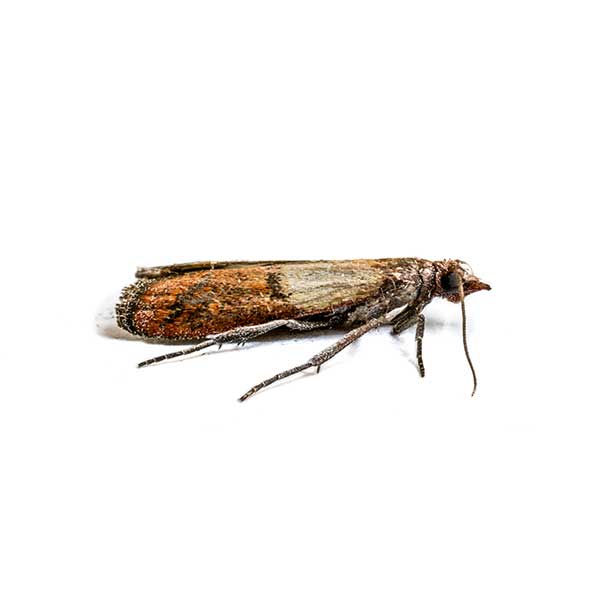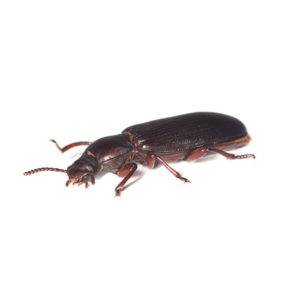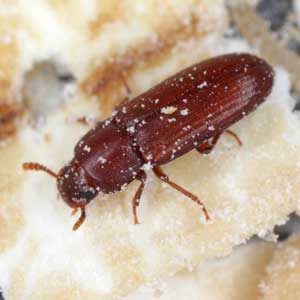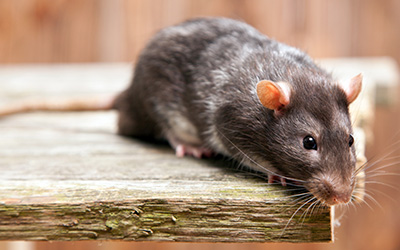Indian Meal Moths in Anaheim
Indian meal moths get their name because of their love for Indian cornmeal. These small pests are known across the world for infiltrating pantries and consuming all sorts of dried grain products, dried fruits, nuts, and other stored food items. Though the adults do not eat, most people notice infestations when they spot full-grown moths flying around their home. Indian meal moths are easily identified by the copper or bronze-colored scales on the lower half of their wings.
Indian Meal Moth Habitat
Indian meal moths are commonly found pretty much wherever we keep dried food, from household pantries to grocery stores. They typically prefer coarser grades of flour, which is why Indian meal moths are more likely to chew through whole wheat or cornmeal. Although these pests are very small, their larvae can contaminate and ruin large amounts of food in a short period of time. While they feed, Indian meal moth larvae will also spin silken webbing, which is a surefire sign of an infestation.
Indian Meal Moth Behaviors, Threats, or Dangers
Though it’s never fun to discover your food is full of bugs, Indian meal moths don’t pose a threat to your health. They don’t bite and aren’t known to spread any diseases to humans. That said, Indian meal moth larvae can contaminate and ruin a lot of food, especially if they’re infesting a grocery store or food processing facility. If you notice adult Indian meal moths flying around your home or business, start by discarding any infested material. Then, contact your local pantry pest exterminators to ensure the moths are gone for good.






